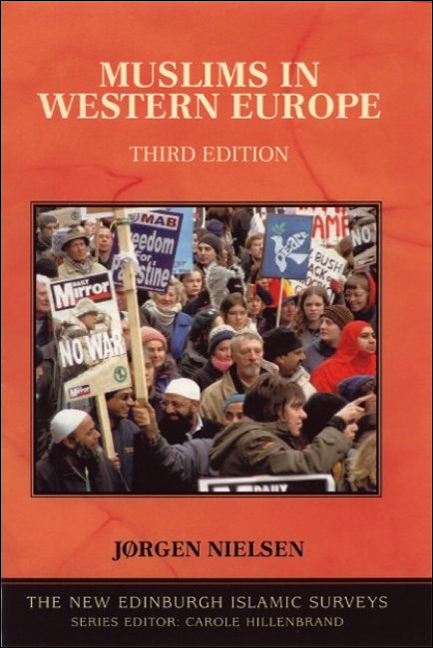4 - United Kingdom
Published online by Cambridge University Press: 20 December 2017
Summary
Immigration and settlement
The immigration of people of Muslim background in the period after the Second World War has tended to be subsumed under the general heading of ‘coloured’, ‘immigrant’, New Commonwealth and similar all-embracing terms. This disguises not only the fact that these general definitions include Afro- Caribbean, South Asian and other origins, but also the significant differences of origin, culture, religion, class and education which are to be found within the main subcategories. I shall concentrate on those groups which come from a wholly or mainly Muslim background.
Until 1962, entry into Britain by citizens of British colonies and member countries of the Commonwealth was unrestricted. The first major wave of immigrants after the end of the Second World War came from the various islands of the West Indies, starting in the late 1940s. The migration from the Indian subcontinent took off much more slowly, and was based very much on those hundreds of men who had worked on British ships during the war, as well as on the smaller number of professionals. During the 1950s, ‘travel agents’ from these communities were active in setting up business alongside the family networks. Together, they facilitated an annual gross immigration of about 10,000 men from the Indian subcontinent. Economic decline reduced this rate in the last couple of years before 1960, but the existence of the networks meant that when the time was ripe, there was the capacity for a very sharp rise in the rate of immigration from the Indian subcontinent.
The one immediate cause of the sudden rise in entries during 1961 and 1962 was the prospect of legislation restricting entry. The Commonwealth Immigrants Act 1962 was a response to a growing public debate over the desirability of large-scale immigration of ‘coloureds’. There were clear elements of racism in the debate, linked to a perception of Britain moving out of its imperial mode. The debate had been fuelled by ‘race riots’, in particular those in Notting Hill (London) and Nottingham in 1958. Over the eighteen months during which policy and then legislation were discussed, there was a massive increase in immigration from all regions, particularly from the Indian subcontinent. In addition, the controls were ineffective.
- Type
- Chapter
- Information
- Muslims in Western Europe , pp. 43 - 66Publisher: Edinburgh University PressPrint publication year: 2015



